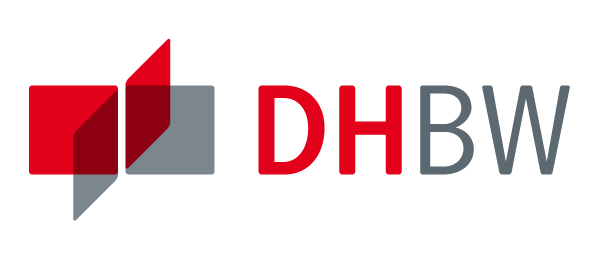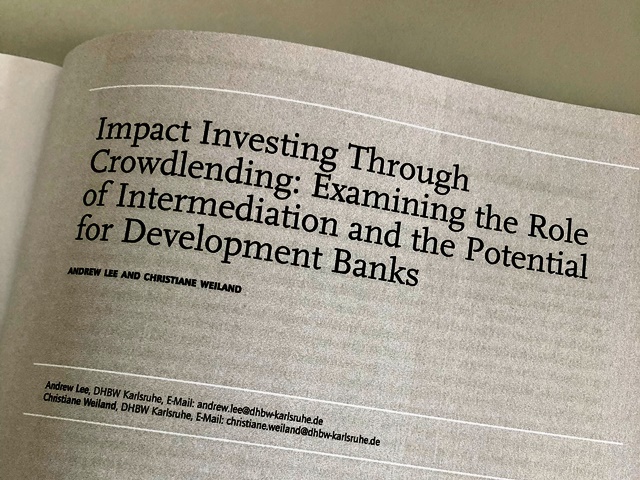‚Impact Investing through crowdlending - Potential for Development Banks’
Artikel “Impact Investing Through Crowdlending: Examining the Role of Intermediation and the Potential for Development Banks” im 'Vierteljahrsheft zur Wirtschaftsforschung' des DIW veröffentlicht.
Impact Investing Through Crowdlending: Examining the Role of Intermediation and the Potential for Development Banks (English summary below)
Pünktlich zum Start des neuen Schwerpunkts Förderkreditgeschäft im Studiengang BWL-Bank der DHBW Karlsruhe erschien ein Beitrag von Prof. Dr. Andrew Lee und Prof. Dr. Christiane Weiland in den DIW Vierteljahrsheften zur Wirtschaftsforschung. Sie untersuchten Optionen für die Erweiterung des Geschäftsmodells von Förderbanken vor dem Hintergrund aktueller Herausforderungen.
Förderbanken sehen sich verändernden Marktbedingungen mit niedrigen Zinssätzen, schnellem technologischen Wandel und einem erhöhten Interesse an Impact-Investitionen gegenüber. Dieses Umfeld stellt traditionelle Prozesse und Geschäftsmodelle in Frage, birgt aber auch eine Chance, neue und nachhaltige Geschäftsmöglichkeiten zu entwickeln. Sie untersuchten Beispiele für Impact Investment Crowdfunding-Plattformen in einem internationalen und nationalen Kontext und evaluierten ihre Organisationsstruktur insbesondere im Hinblick auf die mögliche Einbindung eines Intermediärs und eventuelle Interessenkonflikte. Ihre Analyse liefert sowohl eine wirtschaftliche Rechtfertigung für die Aktivitäten von Förder- und Entwicklungsbanken in diesem Bereich als auch neue Inputs für die Erweiterung ihres Geschäftsmodells, indem sie ein transparentes und vertrauenswürdiges Anlageinstrument für Kleinanleger bereitstellen.
Impact Investing Through Crowdlending: Examining the Role of Intermediation and the Potential for Development Banks.
Development banks are facing changing market conditions with low interest rates, rapid techno- logical change, and an increased interest in impact investment. This combination of factors challenges traditional processes and business models, but also provides a chance to develop new and sustained business opportunities. We examine examples of impact investment crowdfunding platforms in an international and domestic context. We evaluate their organisational structure, especially in connection with the potential integration of an intermediary and possible conflicts of interest. Our analysis provides both economic justification for activities of promotional and development banks in this area and new inputs for expanding their business model with a transparent and trustworthy financial lending instrument for small-scale retail investors.
Hier der Artikel
Veröffentlicht in: Vierteljahrshefte zur Wirtschaftsforschung 3 / 2020, S. 99-118, Deutsches Institut für Wirtschaftsforschung e.V., Berlin (DIW)
Informationen zum Studiengang BWL-Bank:
https://www.karlsruhe.dhbw.de/bk/studieninhalte-profil.html
Text: WL, DI, Foto:DHBW KA//WL


